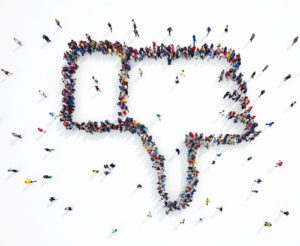 Brands are getting involved as civil rights and activist groups pressure Facebook to stop the spread of misinformation and hate on its platform.
Brands are getting involved as civil rights and activist groups pressure Facebook to stop the spread of misinformation and hate on its platform.
Last week, REI, The North Face and Patagonia said they would suspend their ad spend on the platform for the month of July as part of the Stop Hate For Profit campaign, which encourages advertisers to wield their collective power over Facebook to force the platform to change its content policies.
But we’ve seen this story play out before. Some advertisers suspended their Facebook spend after the 2018 Cambridge Analytica scandal. Advertisers also pulled off of YouTube in 2017 after finding their ads running next to divisive content and misinformation.
Eventually, they all came back.
So AdExchanger asked media agency executives: Why and how this boycott might be different?
- Elijah Harris, SVP, Paid Social, Reprise
- Anthony Koziarski, Chief Media Officer, OMD
- Barry Lowenthal, CEO, The Media Kitchen
- Shamsul Chowdhury, VP, Paid Social, Jellyfish
- George Manas, President and Chief Media Officer, OMD
Elijah Harris, SVP, Paid Social, Reprise
This boycott will be different if we take action and hold each other accountable. We need different inputs if we expect different outcomes. I advocate for advertisers to be more intentional with their ad investments based on how a platform aligns to their values and creates safe spaces for brands and users.
The news cycle will turn over eventually, but my hope is that the sentiment from these conversations is not lost. In order to deliver lasting change, we need to show advertisers what reasonable alternatives to Facebook look like, and determine how to optimize the media plan to continue to deliver on their reach and effectiveness goals.
Anthony Koziarski, Chief Media Officer, PHD
Clients own the decision. We will not recommend our clients join or not join the boycott, or impose our own values on them. Advertisers need to define their own motivations and criteria.
But we are informing clients around the issues and policies driving this boycott and weighing these against Facebook’s response and the guidelines of other social platforms. We are encouraging open discussions.
Should a client decide to follow through with the boycott, we are projecting the impact and scenario planning alternative investments, including cause-related initiatives. We need to align on what their expectations are of Facebook, how they intend to hold them accountable and plan their actions should these be met prior to July 31 or not. This is critical to ensure this is not a one-time action, but part of a sustainable and concerted effort to drive positive change.
Barry Lowenthal, CEO, The Media Kitchen
This boycott is about more than just brand safety. It’s about protecting our democracy. So yes, it’s different.
Some brands I’ve spoken to are only planning to pull back in July. Others are planning to pull back and see what Facebook does before they return. I honestly don’t see how a brand can walk away for a month in protest of the spread of misinformation and harmful content, and then come back if the problems aren’t solved. That feels hypocritical.
I’m also not sure if this is going to blow over very quickly. As we advance toward November, the spread of misinformation and harmful content will only increase, infuriating our country and the brands and people that support Facebook with advertising.
Shamsul Chowdhury, VP, Paid Social, Jellyfish
This boycott will likely be short-lived. Facebook is aware of how its key stakeholders are reacting to its decisions and is receiving compounding pressure from advertisers, users and employees. I trust Facebook to make the right policy changes to course-correct its previous stance so that advertisers are comfortable spending again.
When Cambridge Analytica happened, some brands paused spend on Facebook because they disagreed with its use of data. Amid the backlash, Facebook changed its third-party data policy and advertisers resumed spend. Paired with policy change and the fact that Instagram has dethroned Twitter as the lead source of news on social media, I strongly doubt that advertisers will be gone for long.
George Manas, president and chief media officer, OMD
First and foremost, OMD believes platforms and publishers can and should be doing much better to mitigate divisive rhetoric and misinformation, especially when that content is put forward by political authorities or political entities.
There is a brand safety element to this. Brands want to avoid running their advertising next to content that incites despair, despondency or disenfranchisement and could diminish their brand equity. But the current call to action is really the beginning of a much bigger dialogue about corporate ethics and brand values, and how they manifest in the media marketplace. This is a discussion about brand activism and how advertisers might wield their media budget as a force for good.
The situation is changing hourly. We want to ensure our clients are operating from current, factual information, so we’re focused on providing accurate and timely updates. We’re helping clients more formally align their corporate ethics and brand values with their media principles, beyond transactional elements like price and access. And we’re supporting a series of learning and development initiatives to better empower our staff and clients.













